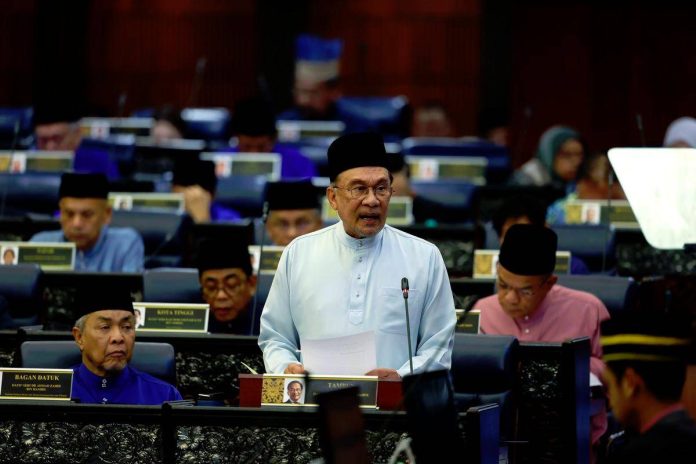PETALING JAYA: The government has unveiled a sweeping set of initiatives under the fifth pillar of the national budget, aimed at strengthening Malaysia’s resilience through a bold and forward-looking energy transition strategy.
Prime Minister Datuk Seri Anwar Ibrahim said the rapidly changing global landscape — marked by geopolitical tensions, energy shifts, and growing food security concerns — demands new, agile, and innovative approaches to ensure Malaysia remains competitive and self-sufficient.
Under the National Energy Transition Roadmap (NETR), Malaysia is targeting 70% of its electricity generation capacity to come from renewable energy (RE) sources by 2050, supported by an RM150 million National Energy Transition Fund.
“Among the major initiatives is the implementation of Large-Scale Solar 6 (LSS 6) projects, with a combined capacity of nearly 2 gigawatts and an estimated RM6 billion in private investment.
“Meanwhile, government-linked investment companies (GLICs) and government-linked companies (GLCs) are set to mobilise RM16.5 billion in renewable energy investments for 2026,” he said.
One key example he said is UEM Lestra, which is developing solar farms in Segamat, Melaka, and Selangor, while partnering with PLUS Malaysia to expand electric vehicle (EV) charging facilities along major highways.
To diversify Malaysia’s renewable energy mix, the government will increase capacity from biogas, biomass, and small hydropower sources through an additional 300-megawatt quota under the Feed-In Tariff (FiT) programme, expected to begin operation by 2028.
“The Corporate Renewable Energy Scheme (CRESS) is projected to generate RM3.5 billion in investment by allowing companies to produce up to 500 megawatts of renewable energy.
Public buildings are also leading the charge. Solar photovoltaic (PV) installations at the Malaysian Parliament, Home Ministry, Wisma Pertahanan, and Armed Forces camps have already achieved a combined capacity of 7.8 megawatts, reducing electricity bills by up to 42%, with Parliament alone saving 22%,” he said.
The Solar Accelerated Transition Action Programme (Solar ATAP) will further empower consumers to generate their own solar energy and sell any surplus back to utility companies, potentially contributing up to 500 megawatts of additional renewable power to the grid.
To encourage green innovation, the Green Technology Financing Scheme (GTFS 5.0) — open until 31 December 2026 — offers government guarantees of up to 80% for projects in the waste management sector and 60% for other green sectors such as energy, water, transport, and manufacturing, with total financing of RM1 billion.
As part of its commitment to environmental accountability, the government will introduce a Carbon Tax next year, initially targeting the iron, steel, and energy sectors.
The tax will be aligned with the National Carbon Market Policy and the upcoming National Climate Change Bill to ensure effective implementation and fairness.
To promote sustainable living, the government will allocate RM20 million in rebates for energy-efficient appliances for both consumers and businesses.
In addition, the current individual income tax relief of RM2,500 will be expanded to cover purchases of food waste composting machines, encouraging households to adopt greener, waste-reducing practices.







